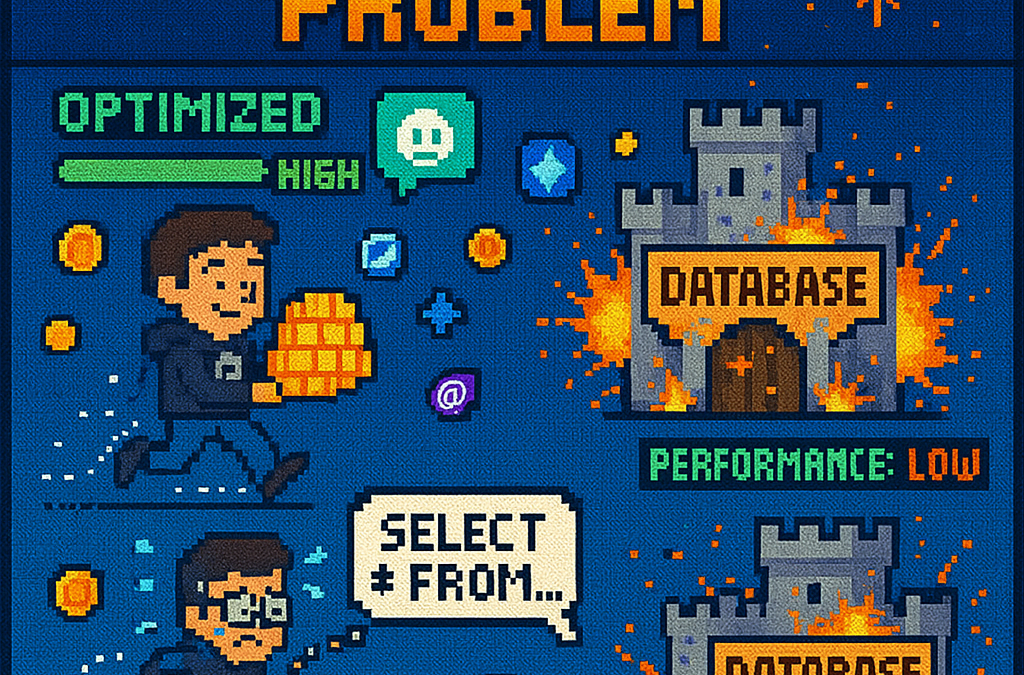
Understanding the N+1 Database Problem using Entity Framework Core
The N+1 database problem is a performance killer that silently destroys application speed. This comprehensive test suite demonstrates how innocent-looking code can generate hundreds of unnecessary database queries instead of one efficient query. Through 12 detailed test cases using Entity Framework Core, we explore the difference between problematic lazy loading approaches that create 4+ queries and optimized solutions using Include() that require just 1 query. Real examples show 75% performance improvements, with actual SQL output revealing what happens under the hood. Learn projection, eager loading, split queries, and batch loading patterns to build applications that stay fast as they scale.
Day 4 (the missing day): Building Data Import/Export Services for Your ERP System
In Day 4 of our ERP development series, we tackle a crucial but often overlooked feature: data import/export services. Learn how to build robust CSV import/export functionality for Chart of Accounts, including error handling, validation, and testing strategies that you can apply throughout your enterprise system.

Building a Comprehensive Accounting System Integration Test – Day 5
This article explores the implementation of a comprehensive integration test for an accounting system, demonstrating how Document and Chart of Accounts modules work together. Using a collection-based approach to simulate database interactions, the test validates double-entry accounting principles while ensuring proper transaction processing and balance verification across various business scenarios.

Understanding the Chart of Accounts Module: Day 3 – The Backbone of Financial Accounting Systems
The chart of accounts module forms the foundation of any accounting system, organizing financial transactions by categorizing accounts. A well-designed implementation includes entity definitions, type enumerations, validation logic, and balance calculation functionality—all working together to support accurate financial reporting while adhering to SOLID design principles.

Understanding the Document Module: Day 2 – The Foundation of a Financial Accounting System
The Document Module forms the foundation of financial accounting systems, organizing financial data into three interconnected components: Documents (the source records), Transactions (financial impacts), and Ledger Entries (account changes). This modular architecture ensures data integrity, maintains audit trails, supports compliance, and enables flexible integration of various financial processes.
Building an Agnostic ERP System: Day 1 – Core Architecture
Building an agnostic ERP system using SOLID design principles and C# 9 addresses recurring challenges in system design. The core architecture features foundational interfaces like IEntity, IAuditable, and IArchivable, creating a technology-independent foundation that maintains consistent performance while enabling reimplementation across various platforms like DevExpress XAF or Entity Framework.



